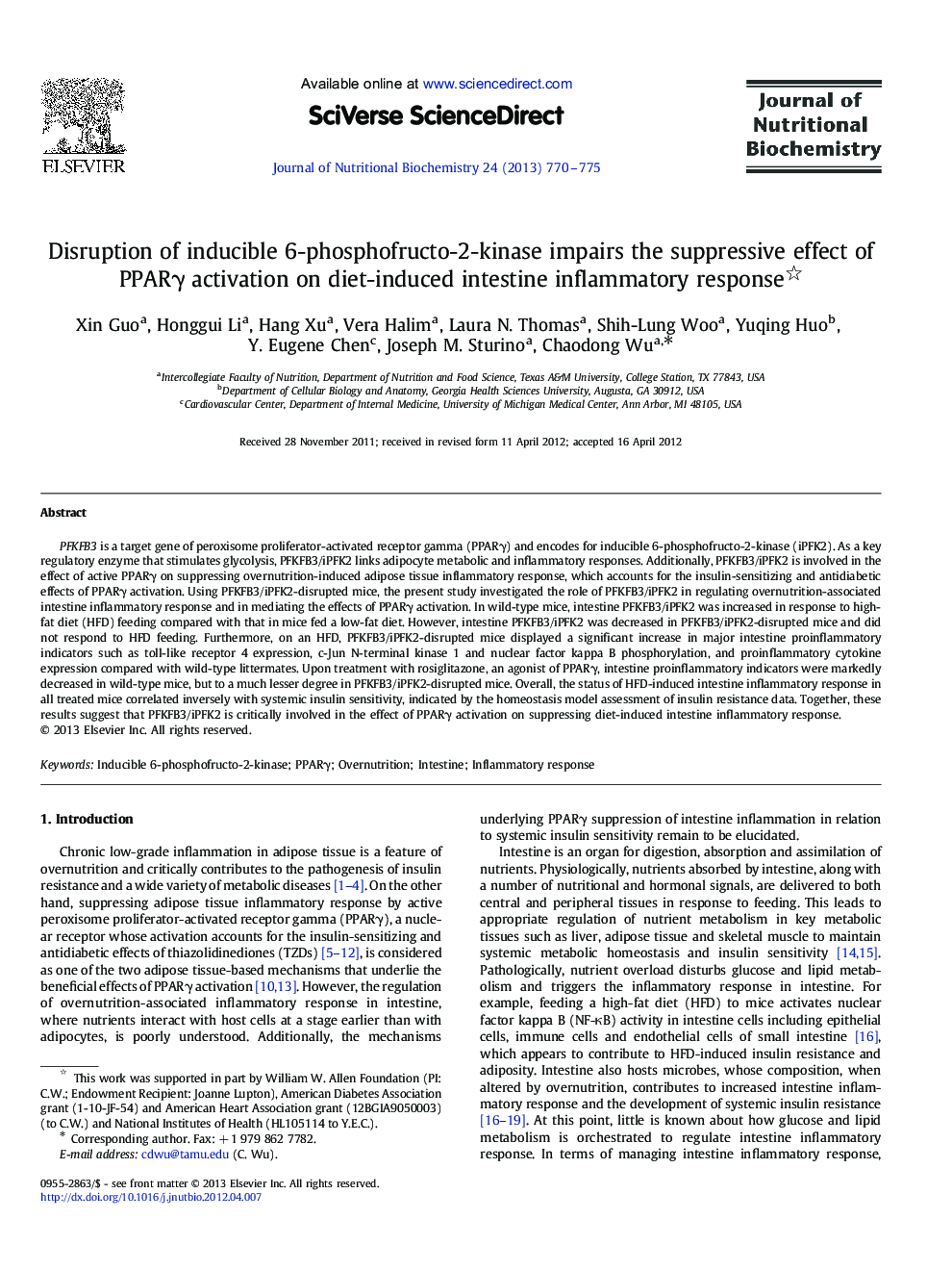| کد مقاله | کد نشریه | سال انتشار | مقاله انگلیسی | نسخه تمام متن |
|---|---|---|---|---|
| 1990038 | 1540673 | 2013 | 6 صفحه PDF | دانلود رایگان |

PFKFB3 is a target gene of peroxisome proliferator-activated receptor gamma (PPARγ) and encodes for inducible 6-phosphofructo-2-kinase (iPFK2). As a key regulatory enzyme that stimulates glycolysis, PFKFB3/iPFK2 links adipocyte metabolic and inflammatory responses. Additionally, PFKFB3/iPFK2 is involved in the effect of active PPARγ on suppressing overnutrition-induced adipose tissue inflammatory response, which accounts for the insulin-sensitizing and antidiabetic effects of PPARγ activation. Using PFKFB3/iPFK2-disrupted mice, the present study investigated the role of PFKFB3/iPFK2 in regulating overnutrition-associated intestine inflammatory response and in mediating the effects of PPARγ activation. In wild-type mice, intestine PFKFB3/iPFK2 was increased in response to high-fat diet (HFD) feeding compared with that in mice fed a low-fat diet. However, intestine PFKFB3/iPFK2 was decreased in PFKFB3/iPFK2-disrupted mice and did not respond to HFD feeding. Furthermore, on an HFD, PFKFB3/iPFK2-disrupted mice displayed a significant increase in major intestine proinflammatory indicators such as toll-like receptor 4 expression, c-Jun N-terminal kinase 1 and nuclear factor kappa B phosphorylation, and proinflammatory cytokine expression compared with wild-type littermates. Upon treatment with rosiglitazone, an agonist of PPARγ, intestine proinflammatory indicators were markedly decreased in wild-type mice, but to a much lesser degree in PFKFB3/iPFK2-disrupted mice. Overall, the status of HFD-induced intestine inflammatory response in all treated mice correlated inversely with systemic insulin sensitivity, indicated by the homeostasis model assessment of insulin resistance data. Together, these results suggest that PFKFB3/iPFK2 is critically involved in the effect of PPARγ activation on suppressing diet-induced intestine inflammatory response.
Journal: The Journal of Nutritional Biochemistry - Volume 24, Issue 5, May 2013, Pages 770–775